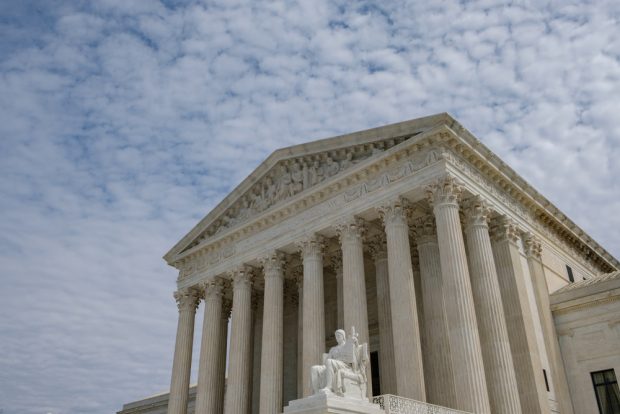 Credit/Shutterstock
Credit/Shutterstock
The Supreme Court's recent decision severely restricting the use of race in the college admissions process has generated almost all the attention related to the Court these days and provided much fodder for spirited dinnertime conversations. That same week, however, the Court decided another case, which is already having a direct and immediate impact on your credit union.
In Groff vs. DeJoy, the Court increased protections for employees seeking workplace accommodations because of their religious beliefs. It deals with an area of law that was relatively obscure until the arrival of the COVID-19 vaccine, which forced every employer to decide whether to impose a vaccine mandate on employees and to understand the conditions under which said employees would be exempted. Because of this decision, every person reading this article who handles HR should review and most likely update the credit union's existing policies.
Recommended For You
Title VII of the Civil Rights Act bans employment discrimination on the basis of religion. It further stipulates that an employer must "make reasonable accommodation for the religious observance of its employees, short of incurring an undue hardship." However, almost since the inception of this law in 1964, there has been a debate over how to balance an employee's religious beliefs against an employee's right to keep her business running. In 1972, Congress further amended this statute to clarify that the prohibition against religious discrimination extended to accommodating an employee's observance and practice of such religion "unless an employer demonstrates that he is unable to reasonably accommodate to an employee's or prospective employee's religious observance or practice without undue hardship on the conduct of the employer's business" (U.S. Code, 42 U.S.C. § 2000e). Then, in 1977, a Supreme Court decision was interpreted as defining an "undue hardship" as "anything more than a de minimis cost," which brings us back to Mr. Groff.
He was a postman in a rural Pennsylvania community who did not want to work on Sunday, in recognition of the Sabbath. This worked out fine until Amazon started delivering packages on Sunday, and his request not to work inconvenienced other mailmen in his small post office. For instance, his boss had to walk a route in his absence. As a result of his refusal, he faced increasing discipline, resigned, and shortly thereafter brought this lawsuit claiming that he was discriminated against in violation of federal law.
No one questioned that, under existing precedent, Mr. Groff's refusal to work was more than a de minimis burden. But, in a decision signed onto by seven justices, the Court ruled that the de minimis standard did not satisfy the statutory requirement that a request for accommodation must be honored unless the burden it imposes is substantial.
Will this impact your credit union's operations? First, remember that it is still the employee's obligation to demonstrate a nexus between the requested accommodation and his or her religious beliefs. For example, an employee whose religion doesn't recognize a specific day of worship doesn't get to claim entitlement to taking every Friday off. However, once a valid request is made, you are going to have to work harder to accommodate your employee. For instance, this case involved a post office with fewer employees than many small credit unions have, but that did not permit the employer to claim an undue burden, even though it meant that other employees were inconvenienced.
When is the undue burden standard satisfied? We will have to wait and see what the courts and other regulators, most notably the Equal Opportunity Employment Commission, have to say on this issue. It is interesting, however, that the court explicitly rejected the idea of equating the reasonable accommodation standard under Title VII with the reasonable accommodation standard under the Americans with Disabilities Act. The only thing we know for sure is that if your employee policy still refers to a de minimis inconvenience, it's time to get that baby updated.
Read More From Henry: 3 Things to Put On Your Summer (Compliance) Bucket List
 Henry Meier, Esq.
Henry Meier, Esq. Henry Meier is the former General Counsel of the New York Credit Union Association, where he authored the popular New York State of Mind blog. He now provides legal advice to credit unions on a broad range of legal, regulatory and legislative issues. He can be reached at (518) 223-5126 or via email at [email protected].
© Touchpoint Markets, All Rights Reserved. Request academic re-use from www.copyright.com. All other uses, submit a request to [email protected]. For more inforrmation visit Asset & Logo Licensing.






